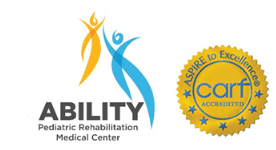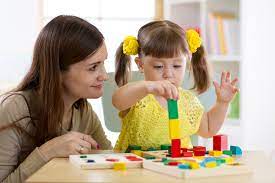The Power of Positive Reinforcement
Behavior Intervention is a scientific approach to understanding human behavior . Our Behavior Intervention professionals work in a safe, child-friendly environment to help understand your child’s developmental needs, and help them learn positive behaviors that they can apply throughout their lives.

Identifying behaviors and skills you want your child to master.
Setting goals and outcomes.
Measuring progress.
Evaluating your child's existing skill set.
Developing and following a treatment plan.
Reviewing your child's progress over time and adjusting as needed.
FAQ'S
Behavior Intervention is the leading approach for improving developmental delays specifically associated with Autism, but is also beneficial to children struggling with behavior problems, ADHD, etc. Behavior Intervention Therapy is likely able to improve your child's quality of life and help them reach their full potential. Behavior Intervention Therapy focuses on human behavior, with an aim of increasing desirable behaviors, while minimizing unwanted behaviors.
Behavior Intervention Therapy will address the developmental delays identified during an initial assessment of your child’s functioning across dozens of areas. With children on the Autism Spectrum, this often includes areas of verbal communication, like the ability to converse with parents and peers, request items, and communicate emotions and needs. Nonverbal communication, like making gestures and understanding social cues, can also be developed.
Other important Behavior Intervention target areas include social skills, play skills, potty training, self-care skills (brushing teeth, washing hands, etc.), and day-to-day living skills (getting dressed, table manners, etc.).
Simply stated, the earlier, the better.
Plenty of clinical research has demonstrated that children who start Behavior Intervention Therapy as early as possible (~2 years of age) make the most significant improvements in their areas of deficit. In fact, children who received early intensive Behavior Intervention Therapy progressed to the point of being virtually indistinguishable from their neurotypical peers.
This is really determined on a child-by-child basis and cannot be determined by anyone but the BCBA and treatment team working with your child. Behavior Intervention is an on-going therapy that can change and grow with your child to cater to their ever-changing needs as they continue to grow older.
This depends on how your child is responding to their treatment plan. Group Behavior Intervention sessions can be provided to help children during the transition stage.
1. Relax and stay calm.
2. Try to know the causes of the behavior (Is it to gain access to a certain item, skip going to a certain place, or them trying to get attention?).
3. Encourage the child to use words to communicate and ask for their needs.
4. Reinforce and reward wanted behavior for example: If the child stands up after having a meltdown in the mall and then begins to walk nicely you can mention how good they are at walking, and you can buy them an ice cream for example at the end of your trip.
2. Try to know the causes of the behavior (Is it to gain access to a certain item, skip going to a certain place, or them trying to get attention?).
3. Encourage the child to use words to communicate and ask for their needs.
4. Reinforce and reward wanted behavior for example: If the child stands up after having a meltdown in the mall and then begins to walk nicely you can mention how good they are at walking, and you can buy them an ice cream for example at the end of your trip.
As each child has individual needs, the type of therapy required will be determined by the treating therapist to ensure all the child's needs and issues are addressed.







